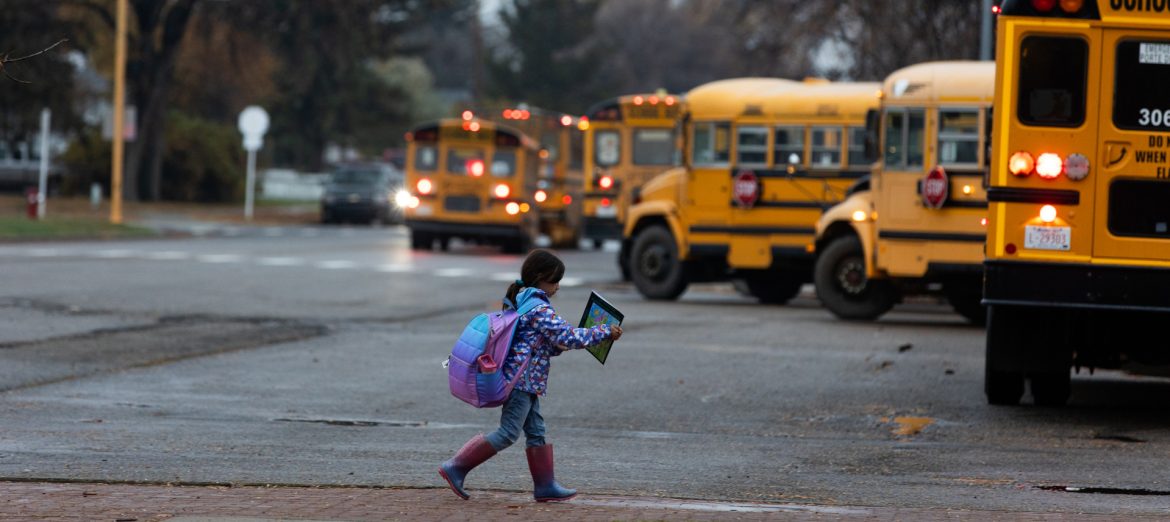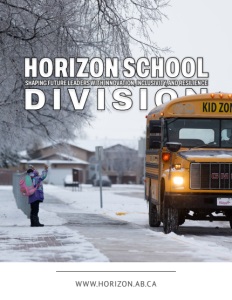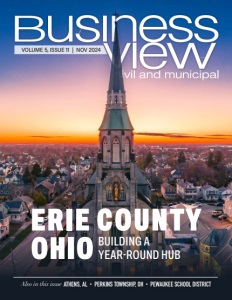Horizon School Division
Shaping Future Leaders with Innovation, Inclusivity, and Resilience
From cutting-edge academic programs to robust mental health support; redefining what it means to prepare students for success in school and beyond.
Horizon School Division in southern Alberta might be situated in a rural setting, but its approach to education is anything but traditional. The division, which spans several small farming communities, prioritizes an inclusive, forward-thinking environment that prepares students for school and life beyond it. With roughly 40% of its student population coming from non-English-speaking backgrounds—Mennonite and Filipino communities forming significant portions—Horizon is tackling diversity and inclusion challenges in a setting many might wrongly assume to be homogeneous.
Dr. Wilco Tymensen, Superintendent of Horizon, explains the division’s central focus: “We’ve worked very heavily on engaging and empowering students. We all know that students can succeed in school, but struggle once they’re out. Our mandate is to make sure that they are not only successful while they’re with us but that they’re also prepared to be contributing citizens once they leave.”
This outlook led the division to extensively consult with thousands of community members, including parents, staff, and students, to understand the values that matter most. Dr. Tymensen shares, “The importance of continual improvement, inclusion, and respect for diversity came through loud and clear.” The insights gained from this process helped shape Horizon’s approach, ensuring that it reflected the student population’s needs and resonated with the larger community.
Given Horizon’s rural location, the diversity of its student body is remarkable. “People often think of small farming communities as being fairly uniform, but that’s not our reality,” Dr. Tymensen notes. He highlights the school’s inclusion of all students, regardless of background. This focus on inclusivity is paired with an emphasis on relationship-building—both crucial aspects of Alberta’s teaching and leadership quality standards, which the division has embraced. “The relationships we build are vital to the education process,” says Dr. Tymensen. “It’s a core competency, and it’s heartening to see that reflected in our culture and our structure.”
Preparing Students for a New Economy
As the world of work evolves, education must, too. Horizon School Division has recognized this shift, particularly at the high school level, where the focus is increasingly on preparing students for the realities of a new economy.
“One of our core mandates is to get kids ready for the next step, whether it’s post-secondary education or directly into the workforce,” Dr. Tymensen explains. “The provincial government has been very clear in their expectations, especially when it comes to skilled trades.” With shortages in sectors like agriculture, mechanics, and wind turbine technology, the division is stepping up to fill the gap, offering students real-world experience beyond traditional academics.
Horizon is innovating through programs like dual credits, where students simultaneously earn high school and post-secondary credits. “We know that when kids are passionate and have a clear pathway, they become more engaged in their learning,” says Dr. Tymensen. Horizon’s partnership with Lethbridge Polytechnic and neighboring school divisions is a prime example. High school students can now explore trade programs ranging from heavy-duty mechanics to renewable energy technologies like wind turbines.
In this shift, Horizon is also challenging long-held assumptions about the paths available to students. The old idea that university is only for the academically elite while college is a fallback for others no longer holds. “We’re seeing students with high grades and strong social skills choose college programs because they’re realizing that these careers can lead to well-paid, fulfilling jobs,” Dr. Tymensen shares. “In many cases, after just two years in post-secondary, these students are earning excellent salaries, supporting their families, and contributing to society in meaningful ways.”
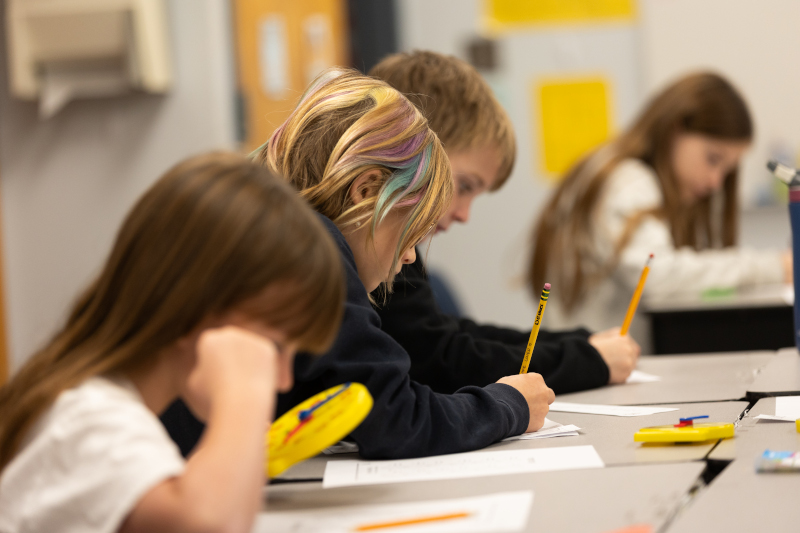
Literacy and Early Intervention
In the Horizon School Division, ensuring student success begins in the early grades. Recognizing that early literacy is foundational to lifelong learning, the division has doubled down on a comprehensive approach that blends strong instruction, targeted intervention, and a growing emphasis on mental health.
“Literacy, for us, is all about early intervention,” Dr. Tymensen explains. “We’ve identified three core priorities: strong instruction, intervention for students who are struggling, and mental health support.” This triad has been especially important post-Covid, as the division works to help students recover academically, emotionally, and socially. “During the pandemic, we saw significant gaps in literacy, with kids learning from home, but we also saw the breakdown of social structures. So now, we’re working hard to help students catch up.”
To address these challenges, Horizon has directed substantial funding and personnel toward the early grades, focusing on literacy fluency and phonics. “We’ve provided a lot of extra support,” Dr. Tymensen says. “The province has also helped by funding additional resources, which allows us to offer targeted interventions in those key areas.”
Assessment plays a crucial role in Horizon’s strategy. In Alberta, recent shifts have increased the frequency and depth of student assessments, and Horizon has embraced these changes. “There’s much more assessment happening now than before,” Dr. Tymensen notes. The division uses tools like Fountas and Pinnell to regularly assess students’ fluency and comprehension, allowing teachers to pinpoint exactly where each child is struggling.
Horizon’s efforts are informed by research from leading institutions like the University of Florida’s Literacy Institute, which the division has brought into the classroom. “We’ve been integrating that research into our teaching practices, making sure our educators are equipped with the latest methods to support literacy growth,” Dr. Tymensen adds. “It’s motivating for our staff to see where the students start and how much progress they can make.”
Infrastructure and Community Partnerships
Horizon School Division has made substantial capital investments to create spaces that support education and enhance its students’ overall well-being and success. “The learning space has a significant impact on how well kids do,” Dr. Tymensen asserts. Thanks to government funding and local fundraising efforts, several schools have undergone extensive modernization over the past few years.
“We’ve been fortunate to have three or four schools modernized in our jurisdiction,” he notes. One example is Barnwell School, where the community raised over $1.5 million to expand and enhance the facility. “The gym was more than doubled in size, and a weight room was added. We also partnered with the community to create a public library,” Dr. Tymensen says.
Dr. Tymensen quickly points out that the board’s investments match these efforts. “The board has invested heavily in ensuring our schools are equipped for modern learning,” he explains. As southern Alberta experiences increasingly warmer temperatures, Horizon has improved classroom conditions. “We’ve upgraded the atmospheric controls in many of our schools because when classrooms are pushing 28 or 29 degrees Celsius, kids simply can’t learn.”
The division’s attention to infrastructure extends to other areas, too. Aging parking lots have been resurfaced, and more flexible seating options have been introduced in classrooms, including standing desks and rocking chairs. “We know some kids need to fidget, so we’ve provided alternatives to the traditional desk and chair setup,” Dr. Tymensen says. Horizon has also equipped nearly all its schools with sensory rooms designed to help students self-regulate and manage their behavior.
Horizon’s approach to education is deeply rooted in community collaboration. “It takes a village to raise a child,” Dr. Tymensen emphasizes. “Our schools use a collaborative response model,” he explains. “When a student is struggling, teachers come together to create a pyramid of intervention, looking for additional support that can help.” This process often involves working closely with families and the broader community to meet students’ needs—whether that’s connecting them with health services, helping parents navigate government support systems, or simply keeping families informed about their child’s progress.
Engaging Students Through Athletics and the Arts
Horizon School Division understands that a well-rounded education extends beyond academics, and the schools have become centers of activity for sports, the arts, and even niche interests like gaming. Dr. Tymensen acknowledges the significance of sports in tight-knit communities. “Athletics are huge,” he says. “During basketball season, our gymnasiums are packed—not just with parents, but with community members as well. It’s a big deal, and it really brings people together.”
The division has invested heavily in gymnasium enhancements, often with direct support from the communities. Dr. Tymensen highlights how the community’s willingness to fundraise has helped improve facilities. But athletics isn’t the only game in town. Recognizing that not all students are drawn to sports, Horizon has made sure there are other outlets for those with different interests. “We provide opportunities for gaming competitions and social clubs,” Dr. Tymensen explains. “It’s about giving all our kids a space where they feel they belong, whether they’re into athletics, gaming, or something else entirely.”
The same inclusive approach applies to the arts. Horizon’s schools offer a variety of fine arts programs, from drama to visual arts, providing students with creative outlets and the chance to showcase their talents. “We put on drama productions that are open to the community, and our students perform in plays that everyone can attend,” Dr. Tymensen notes. These experiences are more than just extracurricular activities—they are pathways to future opportunities. “We’re linking these experiences to potential careers,” he adds, ensuring that students see the arts as a viable option for their futures, whether through scholarships or post-secondary programs.
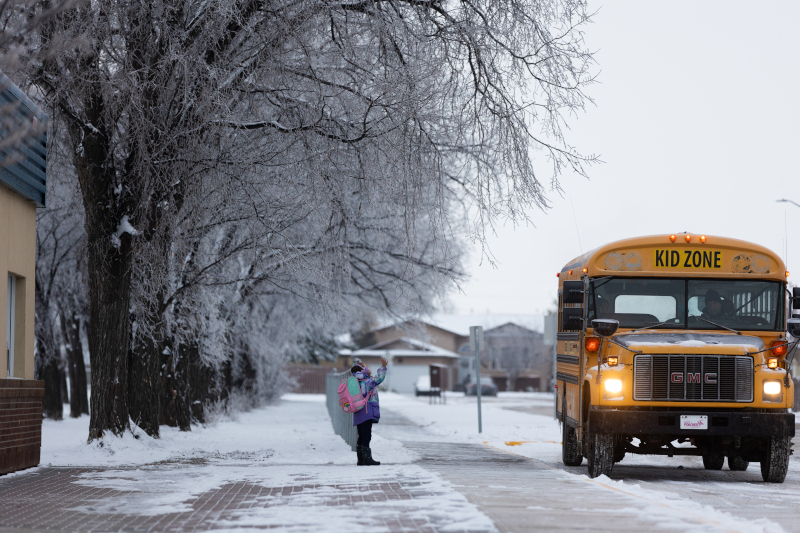
Looking Ahead: Academic Success and Mental Health
As Horizon School Division plans for the future, its priorities are clear: bolstering academic success through targeted interventions and addressing students’ growing mental health needs. Over the next 18 months, Horizon will continue to sharpen its focus on helping students overcome obstacles.
“We’re committed to making sure kids are successful academically,” Dr. Tymensen says. The division’s strategy revolves around supporting students who may be struggling, ensuring that no one falls through the cracks. “We’ll continue to focus on interventions for those who need them,” he adds, explaining how the division allocates budget and resources to provide this critical support.
The division is also paying close attention to the rising levels of emotional issues among students—a trend that has intensified in recent years. “There seems to be a higher level of stress and anxiety for kids,” Dr. Tymensen observes. Horizon is responding with increased access to counseling and peer mentorship programs. “We’re really trying to focus on building resiliency skills,” he says, pointing out that emotional strength and perseverance are just as vital to students’ development as their academic progress.
A key element of this strategy involves reshaping how students and their families think about adversity. “What parents are doing is trying to shield their children from difficulties because it brings about anxiety,” he explains. “But all that does is create a bigger wall and a bigger fear.” For Dr. Tymensen and the team at Horizon, it’s important that students learn how to navigate setbacks and develop the resilience to bounce back stronger. “You learn through trial and error and making mistakes,” he says, adding that the division is working hard to promote a culture of perseverance. “We want kids to understand that making mistakes is part of learning.”
With this dual focus on academic intervention and mental health support, Horizon School Division ensures its students are prepared for more than just the next test or report card. They’re learning how to tackle real-world challenges with confidence and resilience and the understanding that setbacks are simply stepping stones on the path to growth.
AT A GLANCE
Horizon School Division
What: Progressive school division focused on academic success, mental health support, and community partnerships
Where: Southern Alberta, Canada
Website: https://www.horizon.ab.ca/
